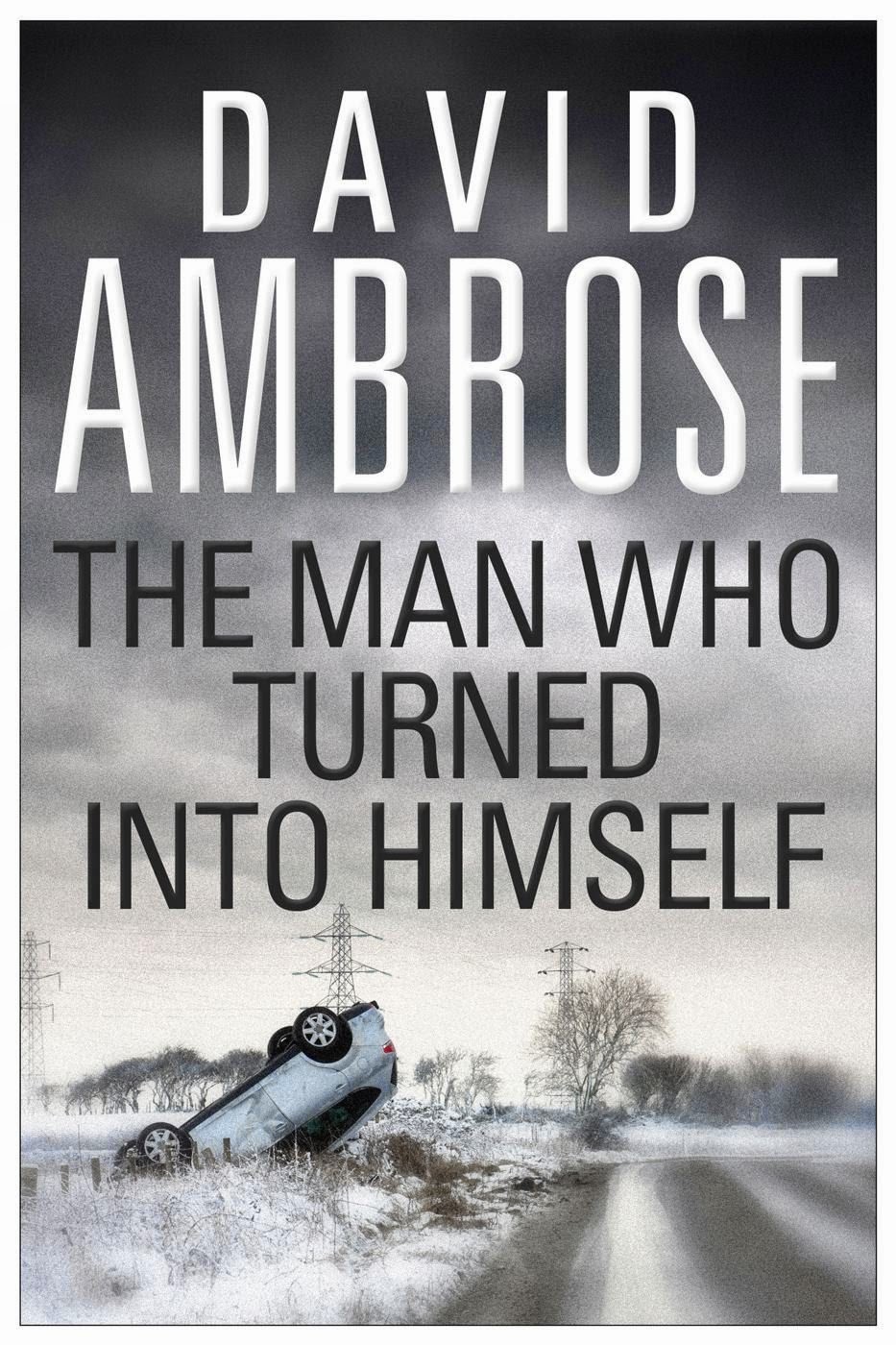Barry Ergang is back this week for
Friday's Forgotten Books. Todd Mason continues to fill in for Patti so make sure you head over to his Sweet
Freedom blog for all of the suggested reads.
THE MAN WHO TURNED INTO HIMSELF by David Ambrose
THE MAN WHO TURNED INTO HIMSELF by David Ambrose
Some books are as difficult
to review as they are to classify. Many a novel’s storyline is familiar enough
that a reviewer can reveal its essence without also giving away the twists,
turns and detours that differentiate it from others of its stripe. At the same
time, the reviewer can categorize the work for the benefit of readers who need
or insist upon pigeonholes.
Offbeat but irresistible,
The Man Who Turned Into Himself is one of the difficult ones. Pigeonholing
it means talking about crossing and even--apologies for the hackneyed terminology--transcending genres. Reviewing it necessitates touching
on some key opening moments to give readers a sense of what lies ahead while
avoiding as many specifics as possible.
Beyond these there will be no additional spoilers to detract from the
experience.
When the story begins, Rick
Hamilton, husband of Anne and father of Charlie, is having a morning of what
can be considered, at best, mixed blessings. Awakening early on a day of an
important meeting for his six-year-old company, Hamilton Publications, Inc.--“Our specialist publications ranged from a literary
review to a newsletter for professional caterers…High school science
departments subscribed in their thousands to Particle/Wave, a digest and
update of progress in the new physics, too simple for genuine researchers but
too technical for the layman”--he manages to avoid both severe physical damage and
death during a domestic accident, and a fatal confrontation with an oncoming
truck on his way to the meeting. He has a near blackout shortly after he
arrives, followed by an unsettling non-encounter with a reflection in a
restroom mirror. Experiencing a bizarre moment of clairvoyance during the
meeting, he bolts from the proceeding, drives to the scene of a highway
accident, abandons his car to get to the actual scene, and sees that a huge
refrigerator truck has jackknifed and crushed the car he bought as a gift for
Anne…”(A)nd now she lay dying, trapped, bleeding, pushed back as though
recoiling in some impossible cartoon-like exaggeration of shocked outrage.
Except this was no cartoon, and no exaggeration. It was simply the literal
truth of what massive, unstoppable force had done to her.”
Charlie, “deathly white but
alive,” has been pulled from the wreckage and, after being held briefly by his
distraught father, is taken away to be tended to while Hamilton turns
helplessly to his dying wife. Literally howling his grief over his loss, he
moments later feels her hand move and hears her saying, “Get me out of here
before this thing rolls over. Richard, help me!” Then, while Hamilton stands by
in a state of stunned passivity, others extricate Anne and he’s holding her
while she consoles him. But when he looks around, doesn’t see
Charlie, and asks where he is, Anne tells him they have no son. When he looks
at the car crushed by the jackknifed truck, he sees that it’s his car,
not Anne’s.
That all occurs in the first
chapter, pages three to twenty-three of the St. Martin’s Press paperback
edition. For a while we follow the emotional travails of Richard Hamilton, real
estate developer. Then Rick Hamilton returns to take over the first-person
narrative. Is this a case of a split personality, or are they separate
individuals, similar but not identical, with similar but not identical backgrounds
and families? If the latter, where did one of them come from, and how did he
come to occupy (and share) the consciousness of the other?
As mentioned earlier, the
novel defies easy classification. Although it contains mystery, some of which
is eventually explained (in a manner of speaking), it is not a mystery or
detective novel in any conventional sense. It contains crime, contemplated and
committed, as well as some noirish moments, but it is not really a crime
novel. Speculative fiction? Psychological suspense? There’s a strong element of
each, just as there’s an element of existential meditation.
None of the aforementioned
terms by itself exemplifies David Ambrose’s debut novel, but each touches on an
essential quality it embodies. Written in lucid, literate prose, it
contains passages some might want to
read more than once to try to fully comprehend concepts the author brings to a
very potent and compelling story that’s not easily forgotten.
Caveat: raw language that
might offend some readers. The story isn’t dripping with it, but there are
more than a few instances of it, including a few f-bombs, so those who find
these objectionable will want to stay away.
© 2014 by Barry Ergang
Derringer Award-winning
author Barry Ergang’s work can be found at Amazon,
Smashwords, Barnes & Noble and Scribd. His website is http://www.writetrack.yolasite.com/












No comments:
Post a Comment